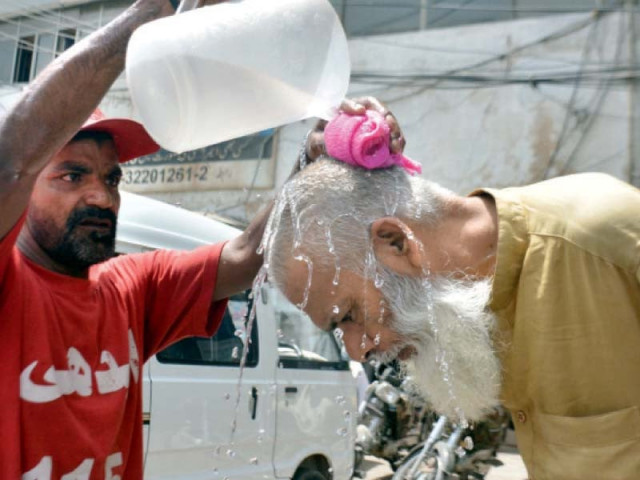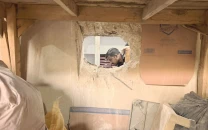Govt unveils action plan to tackle heatwave threat
Heatwave Emergency Control Rooms to be established at strategic locations

The Sindh government has unveiled a robust action plan in a proactive move to assuage mounting concerns of the impending heat wave in June.
With a clear focus on the alarming impact of climate change, it has been highlighted that Pakistan, like many other nations, is grappling with rising global temperatures.
Heat waves are projected to wreak havoc in multiple countries, posing a grave risk to human lives, particularly in urban areas of Pakistan.
Sindh, given its unique topography, stands particularly vulnerable to the perils of climate change.
The scorching climate has already inflicted substantial damage through climate-related disasters.
Tragically, the severe heat wave of June 2015 claimed over 700 lives in Sindh alone.
Moreover, climate change is anticipated to heighten the frequency of catastrophic events such as floods and droughts.
As per the Pakistan Meteorological Department's forecasts, the temperatures for the upcoming month of June 2023 may soar between 44 and 46 degrees Celsius, while May 2023 could see temperatures approach an alarming 50 degrees Celsius.
When combined with high humidity, these conditions pose a grave risk of heat stroke, surpassing the human body's tolerance levels.
Both urban and rural areas of Sindh are susceptible to heat waves, with heat stroke posing a significant threat.
Consequently, high-risk groups, including construction workers, labourers, farmers, law enforcement personnel, industrial workers in high-temperature environments, street vendors, salespeople, public transport drivers, and vulnerable individuals such as the homeless, drug addicts, children, and the elderly are at risk of heat stroke.
The director general of Health Services will spearhead the delivery of healthcare and relief services throughout the province.
Heatwave Emergency Control Rooms will be established across strategic locations.
District Health Officers will oversee the healthcare system at the district level, while medical superintendents of Taluka Headquarters Hospitals will supervise procedures at the Taluka level.



















COMMENTS
Comments are moderated and generally will be posted if they are on-topic and not abusive.
For more information, please see our Comments FAQ